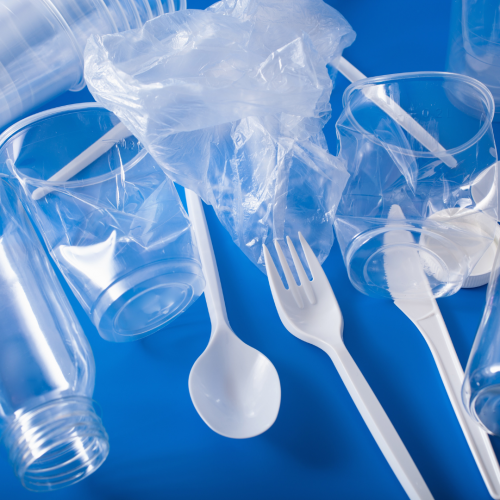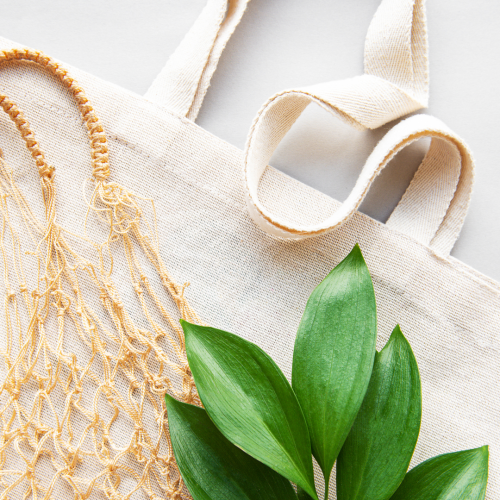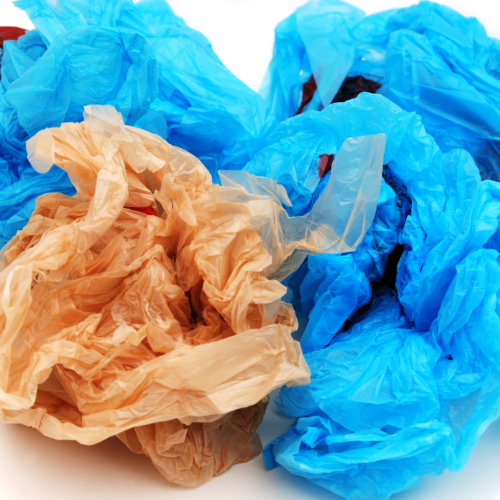Worldwide, we produce 300 million tons of plastic per year – and about 50% of it is comprised of single-use items.
According to the International Solid Waste Association, consumption of single-use plastics increased drastically since the start of the Covid-19 pandemic, in large part due to the rise in takeout orders. Additionally, 98% of single-use plastics are produced from fossil fuels, which cause excess greenhouse gas emissions.
Why it’s a problem
Plastics don’t ever fully break down. Instead, they fragment into microplastics, tiny plastic pieces that pollute bodies of water and are often eaten by animals. Microplastics can accumulate in an animal’s body causing potentially deadly health issues. Recently, researchers have detected microplastics in human blood too.
Travel with Reusables
The best way to avoid single-use plastics is to bring your own eco-friendly alternatives. Keep reusable bags in your car to use when you go shopping. Travel with your own coffee mug and a set of reusable straws.
Just Say No
Even if you find yourself without a reusable replacement, you can be mindful of which plastics you need, and which ones you can turn down. If you buy a drink in a disposable cup, you can still turn down the lid and straw. If you forget your grocery bags, ask for paper instead of plastic.
Take a Stand
Avoid restaurants that only use disposable utensils and dishware. If you do dine at a restaurant that does this, ask them to consider switching to reusable options in the future.
More cities are enforcing bans on single-use plastics such as straws or shopping bags. Support single-use plastic bans in your local area, write an op-ed for the paper, or call your local representative.
plastic bans in your local area, write an op-ed for the paper, or call your local representative.
Info from Earth Day, Smithsonian Magazine, the UN Environment Programme, and the Natural Resources Defense Council.